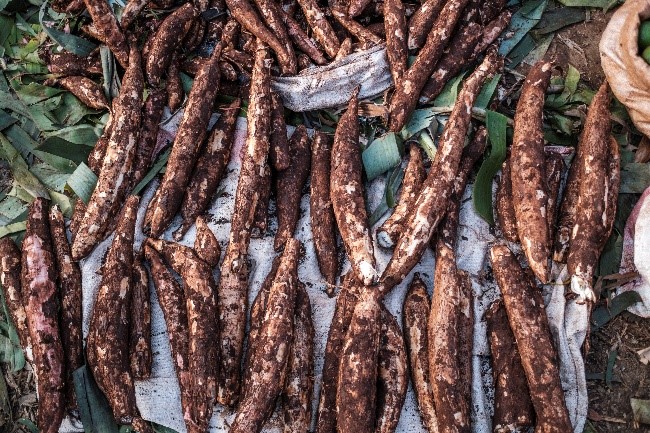Plastic from cassava is good plastic; more please!

When we protect plants,
we protect lives.
#PlantHealthDay
Cassava (Manihot esculenta), also called manioc, yucamanioke, tavioca, mendoka, or mogo, among many names, is the third most important source of calories in the tropics, after rice and maize. It is cultivated by millions of small-scale farmers in over 100 countries, is a staple food for over one billion people and an important source of income.
Major pests/pathogens:
- Cassava green mite
- Cassava Mosaic Disease
- Cassava Brown Streak Virus
- mealybugs
- whiteflies
Economic value:
- Roots and tubers global production rose by 0.8 percent between 2021 and 2022, mostly due to an increase in cassava and potatoes production.
- The top cassava-producing countries in 2022 were Nigeria, the Democratic Republic of Congo, Thailand, Ghana and Cambodia — collectively producing around 187 million tonnes in 2022.
- Top exporters (2023): Thailand, Indonesia, the Netherlands, Brazil, and Cambodia.
- Top cassava starch importers (2023): China, Malaysia, Philippines, and the United States.
Cultural value:
- Cassava is food security crop because its tolerant to drought, can grow in poor soils and remains in the ground for at least two years without rotting.
- Cassava is high in calories and carbohydrates, providing energy for millions of people, especially in the tropics.
- Cassava can be prepared in multiple ways — boiled, baked, steamed, fried into chips, mashed into garri and fufu (mainly West Africa) or arepas flatbread (Latin America).
- Cassava is used as animal feed and in manufacturing different industrial products like biodegradable plastic.
Fun facts:
- Eating raw cassava can be deadly as cassava contains hydrogen cyanide, which is highly toxic.
- Dried and ground cassava root is completely gluten-free and can be used as an alternative to flour.
- Cassava leaves are widely used to treat hypertension, headache, and pain.
- In the Ewe language of West Africa, cassava is called "agbeli", which means "there is life".
Why does protecting plants and crops matter?
Plant pests destroy up to 40 percent of global crops annually. Protecting plants can help:
- Achieve a zero-hunger world
- Reduce poverty and inequality
- Protect biodiversity
- Support livelihoods of rural farmers
- Sustain economies around the world

